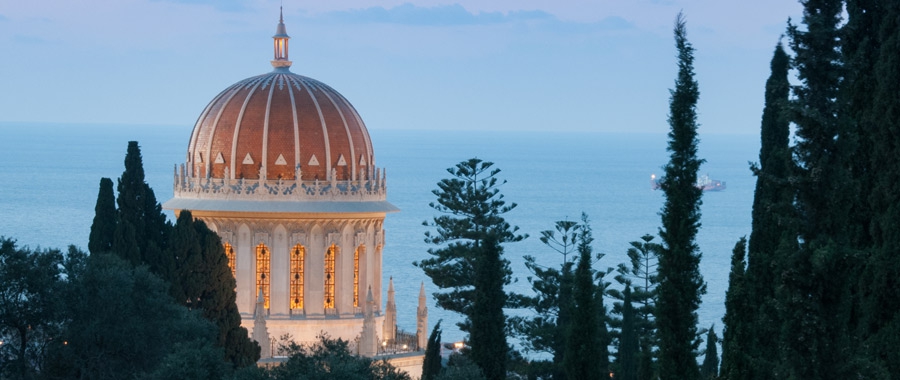The views expressed in our content reflect individual perspectives and do not represent the authoritative views of the Baha'i Faith.
I love stories, and I suspect most of us do – so I’d like to share some stories about the Bab with you. Even if you know very little about the Bab, you might like to hear some of these remarkable stories.
The backstory of this story comes from my own personal history. I was born into a Jewish family and considered that my Faith until 1970, when I decided to seek my own truth. I joined the Baha’i Faith in 1980.
Those 10 years between the Faith I inherited and the one I chose began when I was still a university student exploring politics, social sciences, economics, philosophies, and more. Thinking the world and our place in it would be explained by any of a long list of “isms,” I meandered around. At some point I met a woman named Jan and, perhaps more important for this story, her husband Ross.
Ross was a great storyteller, and he saw my thirst for meaning. Among the many stories he told me were tales about a strange (strange to me anyway) man in mid-1800s Persia, as Iran was called back then.
Born in 1819 with the name Siyyid Ali Muhammad Shirazi, from a very early age the Bab – which means “the gate” – was recognized by others, including his teachers, as possessing “innate knowledge.” Immediately I felt hooked on the idea of a little child so wise, so insightful, that he taught his teachers.
Ross told me many childhood and family life stories about the Bab as a young man, including his reputation for fairness, even generosity, in his family business as a merchant. In his daily work and in his private life, he was like a magnet, attracting others through the power of his personality, his knowledge, and his wisdom. How he discussed holy texts with learned men from near and far, how his behavior inspired others — all of this is well-documented by people, including his enemies, who witnessed these events.
To put it into historical context, around that time profound stirrings arose among many religious groups around the world, not just Islam. During that period, at the middle of the 19th century, each of these religious groups had come to expect the return of their original prophet. Commonly labeled “Messianic,” some of the better-known movements included the Millerites and Mormons here in North America, and the German Templers in Palestine.
At that same time in Persia, people literally set out on foot, traveling for months at a time, seeking the promised one who would serve as “the Gate” to renew their faith.
This story, now taking place in 1844, takes us to the extraordinary fact that — independent of any outside influence, each of their own accord, each through their own stories —eighteen spiritual seekers found and recognized the Báb as a Divine Messenger. In their own time together, the Báb not only elaborated on the Koran and other Holy Texts but also introduced new concepts, writings, and principles that proved to be a departure from Islam and in fact was then, as now, recognized as an independent religion. To understand this, we might compare him to Christ, who had Jewish roots even as he founded an independent faith that we call Christianity.
Eventually the Bab openly declared himself, and after that his followers were known as Babis, and the religion itself was called Babism. Many stories tell how the religion grew and how the political and religious institutions of Persia, motivated by fear, corruption, and jealousy, conspired against the Babis. I found these stories to be riveting, though I won’t detail them here. Instead, I’ll just mention that during those years the persecutions and the killings – really more like genocidal slaughters – were so intense, so savage, that if it were a movie I don’t think we’d even want to watch it.
One of the things I respected about these stories is that we know them to be true. Eyewitnesses, journalists, photographers, and others — not just from Persia but from around the world — have left their accounts as evidence.
So what difference did these stories make in the world? In the second installment of this 2-part series I will discuss the impact of the Bab’s teachings and how these teachings relate to the Baha’i Faith.
















Comments
Sign in or create an account
Continue with Googleor